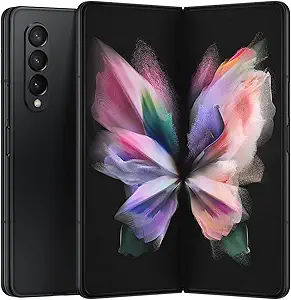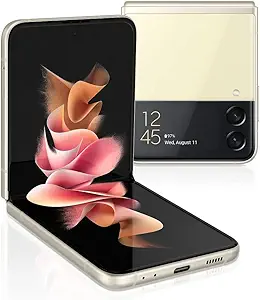Highlights
Smooth and responsive user experiences
Ultra-wide, telephoto and depth sensors
Fast charging technologies
Battery life optimization
Various budget ranges
Foldable display technology
Samsung smartphones have long been at the forefront of innovation, pushing the boundaries of technology with each new release. From groundbreaking features to sleek designs, let's embark on a journey through the evolution of Samsung's iconic devices.
Product Selection
5.0 /5
Samsung boasts an extensive array of options within the smartphone domain, addressing an extensive spectrum of consumer requisites and financial constraints. Spanning from the deluxe Galaxy S and Note series to the more economical A and J series, Samsung smartphones are furnished with diverse specifications tailored to cater to myriad user inclinations. The brand is renowned for its trailblazing technologies, exemplified by the Infinity-O Display, 5G connectivity, and cutting-edge camera systems featured in the latest Galaxy S21 series. Nonetheless, the wide-ranging product assortment may prove overwhelming for consumers, posing challenges in discerning the most suitable model. Furthermore, Samsung's mid-range and budget-friendly smartphones often contend fiercely with competitors such as Xiaomi and Realme, which proffer comparable functionalities at a reduced price threshold. Despite these hurdles, Samsung's expansive product lineup garners acclaim for its ability to accommodate varying user requisites, ranging from top-tier models tailored for tech aficionados to budget-conscious alternatives suited for everyday usage. In juxtaposition to brands like Apple, renowned for its more constrained product range, Samsung's multifaceted smartphone portfolio stands as a formidable asset.
Design/Look
4.6 /5
Samsung, in the smartphone category, has always been known for its innovative and sleek designs. The brand consistently pushes the envelope in terms of aesthetics, with their latest models like the Samsung Galaxy S21 Ultra and the Galaxy Z Fold 2 showcasing a unique blend of elegance and functionality. The S21 Ultra boasts a sophisticated metal and glass body with a dynamic AMOLED 2X display, making it a standout in terms of design. Meanwhile, the Galaxy Z Fold 2 represents Samsung's foray into foldable smartphones, offering a futuristic design that seamlessly transforms from a compact device into a large, tablet-like display. However, while Samsung's designs are generally praised for their beauty and innovation, they also have their downsides. The glass back of models like the S21 Ultra, while aesthetically pleasing, can be prone to fingerprints and potential damage if dropped. The Galaxy Z Fold 2, despite its innovative design, has been criticized for its fragility and the noticeable crease in the middle of the screen when unfolded. Compared to other brands, Samsung's design philosophy leans more towards high-end aesthetics and innovation, often at the expense of durability. Brands like Apple and OnePlus, for instance, tend to offer a more balanced blend of design and durability. Nonetheless, for consumers who prioritize cutting-edge design and are willing to handle their devices with care, Samsung's smartphones remain an attractive choice.
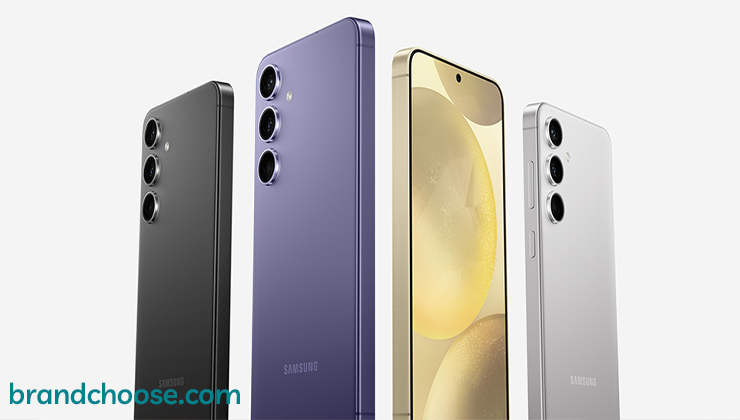
Affordability
3.5 /5
Samsung, a leading brand in the smartphone industry, offers a diverse range of models that cater to different price segments. Their flagship models, such as the Samsung Galaxy S21 Ultra, are positioned in the premium segment and are equipped with the latest technologies like 5G, Dynamic AMOLED 2X, and high-resolution cameras. These high-end models, while offering cutting-edge features, come with a hefty price tag, which might not be affordable for all consumers. On the other hand, Samsung also offers mid-range and budget smartphones, like the Galaxy A series and the Galaxy M series, which are competitively priced and offer good value for money. These models, while not as technologically advanced as the flagship models, still offer decent specifications and features that cater to the average user's needs. Compared to other brands like Apple, which primarily targets the high-end segment, Samsung's diverse price range makes it a more accessible brand for a wider range of consumers. However, brands like Xiaomi and Realme offer similar specifications in the budget segment, making the competition fierce for Samsung in this price range.
Quality/Durability
4.7 /5
Samsung, a renowned brand in the smartphone industry, is known for its quality and durability. Their phones are crafted with high-quality materials such as aluminum and glass, which not only give them a premium look but also enhance their durability. Samsung smartphones are equipped with the latest technologies like AMOLED displays, Exynos or Snapdragon processors, and high-capacity batteries, all of which are designed to withstand prolonged use without compromising performance. However, like any other brand, Samsung smartphones also have their downsides. Some users have reported issues with the longevity of their devices, particularly with the battery life and screen burn-in problems. This is often seen in their older models, but recent models have shown significant improvements in these areas. Compared to other brands like Apple and Huawei, Samsung smartphones are on par in terms of quality and durability. While Apple has a slight edge in terms of software optimization and longevity, Samsung often leads in terms of display quality and customization options. Meanwhile, Huawei smartphones are known for their camera quality and battery life, but their durability is often questioned due to the use of less premium materials.
Reputation
5.0 /5
Samsung, as a brand, has built a strong reputation in the smartphone industry over the years. Known for their innovation, Samsung has consistently pushed the boundaries of what is possible with mobile technology. Their Galaxy series, in particular, has been lauded for its high-quality display, powerful performance, and innovative features. For instance, Samsung was one of the first to introduce smartphones with curved screens and edge-to-edge displays. They have also been leading the charge in the development of foldable smartphones, with the Galaxy Fold and Galaxy Z Flip series. However, Samsung's reputation has not been without its blemishes. The Galaxy Note 7 debacle in 2016, where devices were recalled due to battery issues causing fires, was a significant blow to the brand's image. Despite this, Samsung has managed to bounce back and retain customer trust by addressing the issue transparently and taking measures to ensure such incidents do not recur. Compared to other brands, Samsung's commitment to innovation and quality, coupled with their ability to learn from past mistakes, has helped them maintain a strong standing in the competitive smartphone market.
Customer Support & Warranty
4.5 /5
Samsung's customer support for its smartphone category is widely recognized for its efficiency and effectiveness. They offer several platforms for customer interaction including live chat, email, phone support, and social media, providing a comprehensive support system that is available 24/7. Samsung's latest technology, the Samsung Members App, allows customers to diagnose their device, chat with experts, and schedule in-store repairs, making it an all-in-one solution for customer support. However, while Samsung's customer support is generally praised, it is not without its drawbacks. Some customers have reported long wait times and inconsistent quality of service depending on the representative. Compared to other brands like Apple, which is known for its high-quality customer service, Samsung still has room for improvement. Nonetheless, Samsung's customer support for smartphones is still considered one of the best in the industry, with a wide range of support options and innovative use of technology to assist customers.
Battery Life
4.3 /5
Samsung mobile devices are famed for their sturdy battery longevity, a pivotal factor for any mobile user. The corporation has integrated cutting-edge innovations to augment the battery lifespan of its gadgets. For instance, Samsung's premier handsets, like the Galaxy S21 Ultra, feature a sizable 5000mAh battery capacity, capable of enduring over a day with moderate usage on a solitary charge. Furthermore, Samsung has instituted AI-driven power management systems to optimize battery utilization according to the user's patterns, thereby extending battery longevity. Nevertheless, while Samsung's battery performance is commendable, it does have its drawbacks. Intensive usage, such as gaming or streaming, can lead to rapid battery depletion, a prevalent issue across most mobile devices. Furthermore, while rapid charging technology is convenient, it may potentially compromise the battery's health over time. In comparison to rivals such as Apple and Huawei, Samsung smartphones generally provide a comparable or even superior battery experience.
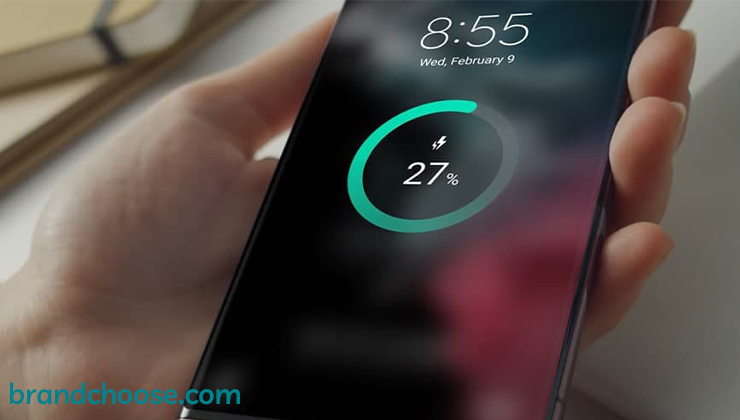
Sound Quality
4.7 /5
Samsung smartphones are known for their superior sound quality, which is largely due to the company's integration of advanced audio technologies. One of the latest Samsung models, the Galaxy S21 Ultra, for instance, features stereo speakers tuned by AKG, providing a balanced and immersive sound experience. This technology enables high-resolution audio playback that captures every nuance in music tracks and delivers clear, crisp audio during calls. However, while the sound quality is excellent, some users have reported that the audio can sometimes come across as too sharp or tinny at higher volumes. Also, the absence of a 3.5mm headphone jack in the latest models can be a downside for some users. Compared to other brands like Apple and OnePlus, Samsung's sound quality is generally considered to be on par, if not better. Apple's iPhones also deliver high-quality audio, but they lack the Dolby Atmos support that Samsung phones have. Meanwhile, OnePlus phones, although they offer decent audio quality, do not match the richness and depth of sound provided by Samsung's AKG-tuned speakers.
Display
4.8 /5
Samsung is renowned for its cutting-edge display technology in the smartphone industry, particularly for its Super AMOLED (Active-Matrix Organic Light-Emitting Diode) displays. The latest Samsung Galaxy S21 Ultra, for instance, features a Dynamic AMOLED 2X display, which provides a resolution of 3200 x 1440 pixels, a high peak brightness of 1500 nits, and supports HDR10+. This results in vibrant colors, deep blacks, and a high level of detail, making it ideal for multimedia consumption and gaming. However, while Samsung's display technology is top-tier, it does consume more battery life compared to other brands with LCD displays. Moreover, AMOLED screens are more prone to screen burn-in over time, although Samsung has implemented measures to mitigate this issue. Compared to other brands, such as Apple's iPhone 12 Pro Max with its Super Retina XDR OLED display, Samsung's display technology is considered superior in terms of color accuracy and brightness. However, Apple's display technology offers a more consistent brightness distribution and better performance under direct sunlight.
Performance
4.6 /5
Samsung smartphones, particularly its flagship models in the Galaxy S and Note series, are renowned for their high-performance capabilities. They are equipped with the latest technologies such as the Qualcomm Snapdragon or Samsung's own Exynos processors, which are among the most powerful in the market. These processors, coupled with high RAM capacities, ensure smooth multitasking, fast app launches, and seamless gaming experiences. Samsung's software optimization also contributes to the overall performance, with the One UI interface providing a fluid and responsive user experience. However, the performance of Samsung smartphones can sometimes be inconsistent, especially between the Snapdragon and Exynos variants. Some users have reported that the Exynos models tend to heat up and drain battery faster than their Snapdragon counterparts. Moreover, while the high performance of Samsung smartphones is commendable, they are often matched or even surpassed by competitors such as Apple and OnePlus in terms of raw processing power and efficiency. Despite these issues, Samsung's commitment to innovation and improvement has kept it at the forefront of the smartphone industry in terms of performance.
Camera Quality
4.6 /5
Samsung has consistently been a leader in the smartphone industry, particularly in terms of camera quality. Their latest flagship models, such as the Samsung Galaxy S21 Ultra, come equipped with advanced camera technology that includes a 108-megapixel primary sensor, a 12-megapixel ultra-wide lens, and two 10-megapixel telephoto lenses. This multi-lens setup allows for high-resolution images, impressive zoom capabilities, and a wide range of shooting modes, including a night mode for low-light photography and a Single Take mode that captures a variety of formats with one click. However, while Samsung's camera technology is impressive, it is not without its drawbacks. Some users have reported oversaturation in photos, leading to less natural color representation. Additionally, while the high megapixel count allows for detailed images, it can also result in larger file sizes, which may quickly consume storage space. When compared to other brands, such as Apple and Google, Samsung's camera technology is on par in terms of innovation and quality. However, the interpretation of color and contrast may vary depending on personal preference. For instance, Google's Pixel phones are often praised for their more natural color processing, while Apple's iPhones are known for their balanced and consistent photo quality.
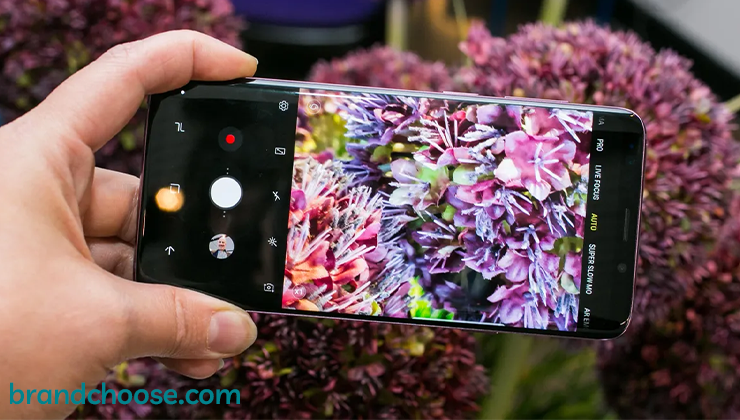
Conclusion
In conclusion, Samsung smartphones have cemented their position as leaders in the world of mobile technology, thanks to their relentless commitment to innovation and excellence. With each new release, they continue to captivate users worldwide, setting new standards for performance, design, and user experience. As we eagerly await the next chapter in Samsung's smartphone saga, one thing is certain: the future is bright, and the possibilities are endless.



